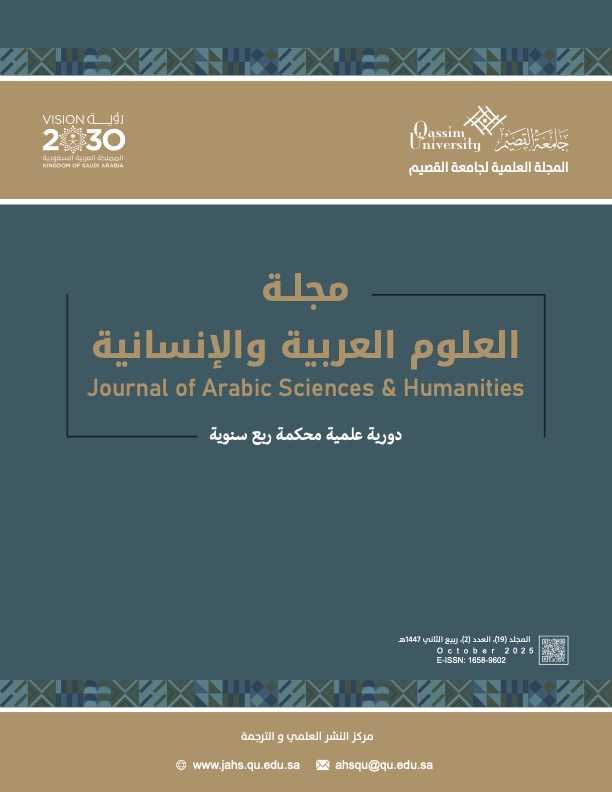Literary Reciprocal Falsehood in Arab Heritage: A Pragmatic Approach
Abstract
This research examines the discourse of literary reciprocal falsehood (referring to situations where each party perceives the other as lying) in the Arab heritage, asking a central question: What are the rhetorical foundations upon which this discourse is built? Using a pragmatic approach, the study aims to identify and analyze these rhetorical foundations, highlight the role of pragmatics in shaping the features of this literary genre, demonstrate the impact of intentionality and authority, and uncover the discourse strategies it employs. The paper discusses the interplay of context, intentionality, and authority in reciprocal falsehood. The findings reveal that this discourse is grounded in orality, relies heavily on dialogue, and is marked by clarity of intentionality and authority within specific contexts. Strategies were diverse, and the discourse fulfilled both communicative and literary functions.
Keywords: Bedouin reciprocal falsehood, literary falsehood, pragmatics, discourse, lying.

This work is licensed under a Creative Commons Attribution-NonCommercial 4.0 International License.


